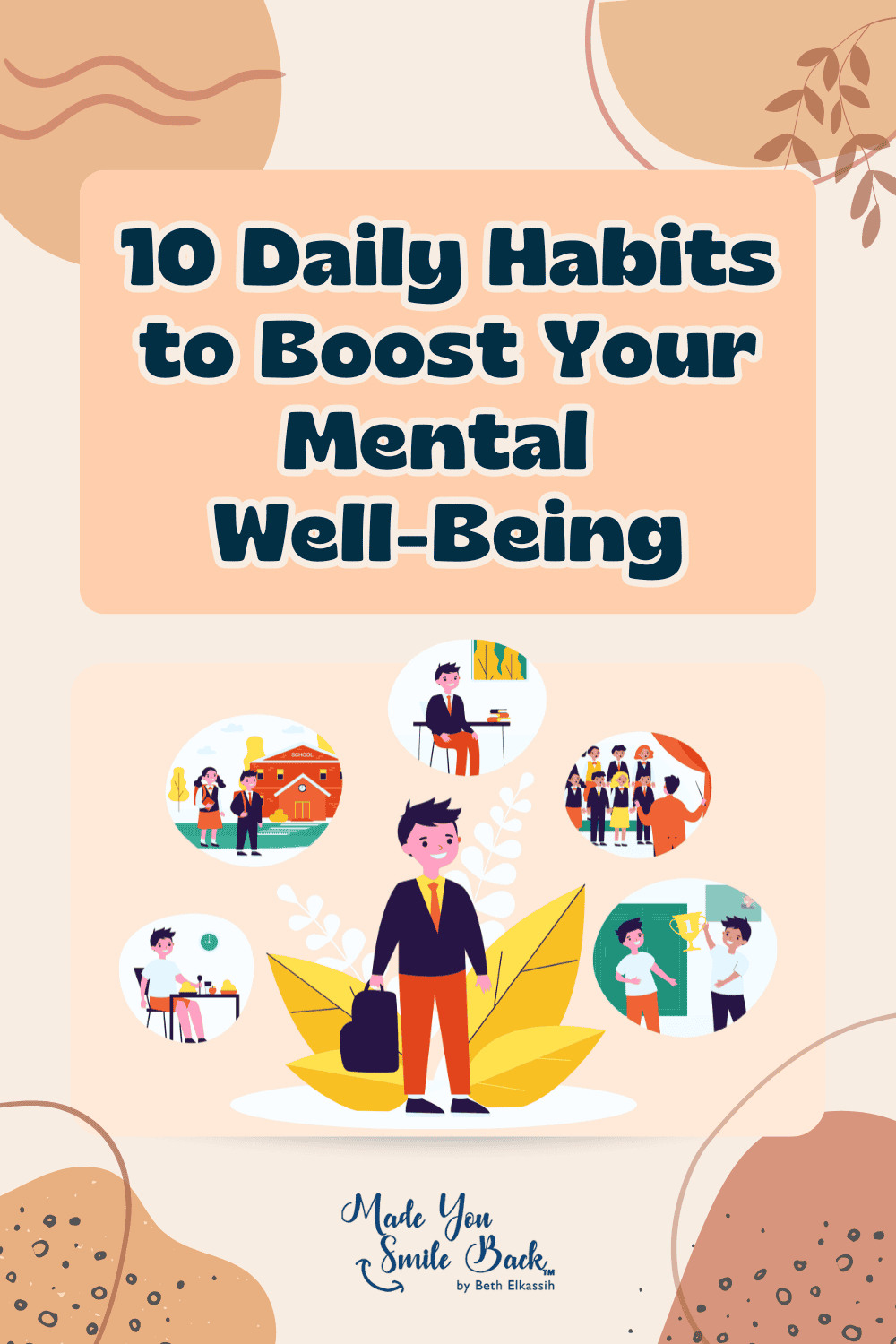Good mental health is just as important as physical health, yet many of us neglect it in our busy daily lives. Stress, poor sleep, lack of connection, and unhealthy habits can all chip away at our happiness over time. The good news? Science shows that small daily practices can significantly improve your mental well-being and boost long-term happiness.
In this article, we’ll explore 10 daily habits that are easy to integrate into your routine, backed by psychology and neuroscience.
1. Start Your Day with Gratitude
Taking just two minutes each morning to write down three things you are grateful for can rewire your brain for positivity. Gratitude practices reduce stress, improve resilience, and even enhance sleep quality.
👉 Try keeping a small journal by your bed and list what made you smile yesterday or what you’re looking forward to today.
2. Move Your Body (Exercise for Mental Clarity)
Exercise isn’t just about physical fitness — it’s one of the most effective natural antidepressants. Studies show that 30 minutes of walking, yoga, or strength training can reduce anxiety and elevate mood.
- Releases endorphins (feel-good chemicals)
- Improves focus and memory
- Reduces symptoms of depression
3. Prioritize Quality Sleep
A lack of sleep disrupts brain chemistry and increases emotional reactivity. Aim for 7–9 hours of restful sleep per night.
Tips for better sleep:
- Keep a consistent sleep schedule
- Avoid screens before bed
- Try relaxation techniques like deep breathing
👉 Helpful Resource: National Sleep Foundation
4. Practice Mindfulness and Meditation
Mindfulness helps you live in the present, reducing anxiety about the future and regret about the past. Even 5–10 minutes of meditation daily can calm your mind and strengthen focus.
Free apps like Insight Timer or Headspace can guide beginners.
5. Nourish Your Body with Brain-Healthy Foods
What you eat affects how you feel. A diet rich in omega-3s, leafy greens, nuts, berries, and whole grains supports mental clarity and emotional stability.
- Avoid processed sugar and too much caffeine
- Stay hydrated
- Consider adding probiotics for gut-brain health
👉 Learn more from Harvard Health on Nutrition and Mental Health.
6. Build Meaningful Connections
Strong social bonds are one of the biggest predictors of happiness. Make it a daily habit to connect with loved ones — even a quick call, message, or coffee with a friend can boost your mood.
- Practice active listening
- Express appreciation
- Spend more time in positive company
7. Limit Screen Time & Digital Overload
Too much social media can fuel comparison, anxiety, and stress. Be mindful of your digital diet.
Tips:
- Set screen limits (iPhone/Android have built-in tools)
- Avoid “doom scrolling” before bed
- Replace 15 minutes of screen time with a walk, journaling, or meditation
8. Engage in Acts of Kindness
Helping others isn’t just good for them — it boosts your happiness too. Research shows that acts of kindness increase serotonin and dopamine, giving you a natural “helper’s high.”
Examples:
- Compliment someone sincerely
- Volunteer or donate
- Help a friend or neighbor
👉 Check out Mental Health America’s volunteering resources for ideas.
9. Practice Self-Compassion
Be kind to yourself. Negative self-talk can be destructive, while self-compassion builds resilience and confidence.
- Replace “I’m a failure” with “I’m learning and improving.”
- Treat yourself like you would a friend.
- Take breaks when needed — rest is productive.
10. Create a Joyful Evening Ritual
Wind down your day with habits that nurture happiness. This could include:
- Reading a book you enjoy
- Taking a warm shower
- Writing a reflection journal
- Listening to calming music
The key is consistency — creating a ritual signals to your brain that it’s time to relax.
Bonus Tip: Laugh Every Day
Laughter reduces stress hormones, strengthens immunity, and improves mood. Watch a funny video, share a joke, or spend time with people who make you smile.
👉 Recommended Video: How to Train Your Brain to Be Happier
FAQs
1. How long does it take to see improvements in mental health with these habits?
Most people notice small changes in mood and energy within 2–4 weeks of consistently practicing these habits.
2. Can I improve my mental health without medication?
Yes, lifestyle changes like sleep, diet, exercise, and mindfulness can have powerful effects. However, if symptoms are severe, always consult a professional.
3. What’s the easiest daily habit to start with?
Gratitude journaling or short walks are often the easiest to begin with and create a strong foundation.
4. How much exercise is best for mental health?
Around 150 minutes per week of moderate activity (like brisk walking) is recommended.
5. Do I need to follow all 10 habits daily?
Not at all. Start small — even 1 or 2 habits practiced consistently can bring significant benefits.
Final Thoughts
Boosting mental health and happiness doesn’t require drastic life changes. Instead, it’s about small, sustainable daily habits that add up over time. Whether it’s gratitude journaling, better sleep, or simply connecting with a friend, each step makes your mind stronger and your life brighter.
Happiness isn’t about avoiding problems but about building resilience and joy through intentional living.
Top 25 Proven Tips to Sleep Better at Night
